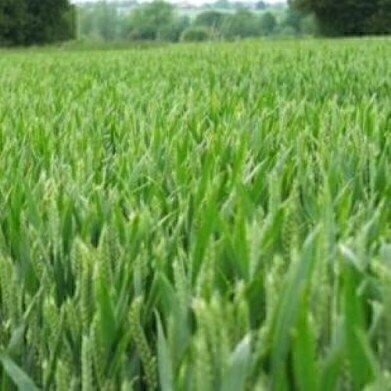-
 Many crops are suffering from lowered nutrients due to climate change
Many crops are suffering from lowered nutrients due to climate change
Air Clean Up
Climate change 'affecting crop nutrients'
May 08 2014
The nutrition of crops grown around the world could be significantly affected by the rising levels of carbon dioxide in the atmosphere, according to new research. Scientists have found that wheat and rice could have up to ten per cent less iron, zinc and protein by 2050 due to the changes in air pollution.
As climate change is worsened by the levels of carbon dioxide continuously being pumped into the atmosphere, scientists have suggested that human health could be impacted by more than just air quality. The loss of nutrients from key crops could create health issues for billions of people across the globe, especially within developing countries.
An international team of researchers, whose findings have been published in the journal 'Nature', have performed a global analysis based upon a number of experiments that took place in the US, Australia and Japan. The team grew 41 types of legumes and grains in open fields that were exposed to levels of carbon dioxide that are expected to be commonplace by 2050.
According to Dr Samuel Myers from the Harvard School of Public Health, the loss of crop nutrients due to carbon dioxide could be the most significant threat to human health that has been documented as being a result of climate change.
"We found significant reductions in iron, zinc and protein in rice and wheat, and we found significant reductions in iron and zinc in soybeans and field peas as well," he told the BBC.
The research team have estimated that reductions in key nutrients within crops could result in health issues for millions - if not billions - of people around the world. They found that almost two billion people get around 70 per cent of the zinc and iron in their diet from the legumes and grains used in the study. The reductions could therefore result in deficiencies within these people, continued Dr Myers.
However, the scientists say that eating more food to try and combat deficiencies is not the answer to this issue, as it could increase the number of people that are classed as morbidly obese.
It is not yet fully understood how carbon dioxide increases in the air trigger the reduction in crop nutrients, especially as the new findings are not consistent with previous suggestions that crops would substitute carbohydrates for nutrients as the gas levels increased in the atmosphere.
Events
Nov 26 2024 Paris, France
Nov 27 2024 Istanbul, Turkey
H2O Accadueo International Water Exhibition
Nov 27 2024 Bari, Italy
Biogas Convention & Trade Fair 2024
Nov 27 2024 Hanover, Germany
Dec 11 2024 Shanghai, China








-as-feedstock.jpg)




